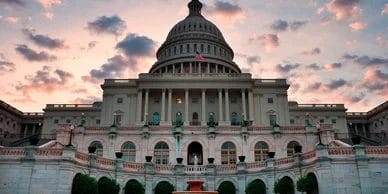
The second televised debate of this presidential campaign took place last week. Previously, on June 27th, the debate between Trump and President Biden sunk the latter’s campaign. Biden’s “seniority” and cognitive abilities had been exposed, and the party had little alternative but to ask him to step aside in favour of his vice president, Kamala Harris. He launched her campaign, which was crowned by the Democratic Convention in Chicago in August. That convention revitalised the moribund Democratic campaign. It was a much-needed sugar rush that raised the hopes of a potential victory by the Democratic candidate in November.
Like all sugar rushes it proved to be short-lived. Kamala Harris had to confront a much larger audience than that of the Democratic party, which, along with party grandees such as Nancy Pelosi, Bill and Hillary Clinton, Barack and Michelle Obama, was unconditionally supporting her. She had to confront the wider American audience, not simply her ultra-liberal, pro-Democratic home state of California. In the television interview at CNN, her performance was very poor. She appeared weak, unconvincing, un-prepared, even for the most basic question: “What would be your first act at the White House if elected?”
Doubts about the quality of the candidate started to re-emerge; Kamala Harris had after all been left in the dark for more than three years during the Biden presidency, considering the many gaffes she made on several occasions, and the poor handling of the dossiers she was given, including the all-important one on immigration. People remembered how poorly she performed during her own presidential campaign, when her most notable act was that of “reportedly accusing Joe Biden of racism,” before being chosen as a running mate to attract the vote of women and ethnic minorities.
Second thoughts emerged about her selection, which had been made without much debate: no other candidate has been given the chance to become the front-runner of the Democratic party. What if, after all, the Democrats have made just another “elitist” choice? Doubts emerged as to whether Harris would be able to survive the debate with Trump on September 10th, considering how vague her answers were during the CNN interview. What if a televised debate would sink yet another Democratic candidate?
Things went differently: Harris mastered the scene wonderfully and forced Trump on the defensive for much of the debate. For 63% of the polled individuals, she won the debate. Even Republican supporters had to admit defeat. Following his defeat, Donald Trump has ruled out another presidential debate against Kamala Harris before November’s election.
Subsequent national polls show that, after the debate, Harris has taken a more decisive lead in the popular vote, with a 5-point margin (47% to 42%) versus Trump. But national polls are of little significance. As we all know, this campaign will be won by tiny segments of undecided voters in 7 key states: Wisconsin, Arizona, North Carolina, Georgia, Pennsylvania, Michigan and Nevada.
In conclusion, the televised debate has re-opened the race for the White House, and Harris now has a chance of winning, something that appeared unlikely only a few days ago, before the debate.